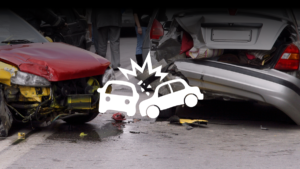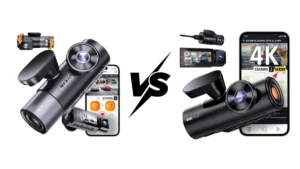
What does Comprehensive Insurance cover? What it is, how it works, and when it's worth it.
He comprehensive insurance It's the most comprehensive option offered by car insurance companies. Although it's usually more expensive than other options such as third-party or extended third-party insurance, it also provides the driver with the greatest peace of mind, as it covers virtually any damage the vehicle may suffer, whether the accident was your fault or not.
In this guide we explain how comprehensive insurance works, what coverage it includes, when it's a good idea to purchase it, and we answer drivers' most common questions.
What is comprehensive insurance?
Comprehensive insurance is a policy that covers both damage to third parties (required by law in Spain) and damage to the insured vehicle itself.
This means that even if you have an accident that's your fault, the company will take care of your car's repairs, something that doesn't happen with other, more basic types of insurance.
What does comprehensive insurance cover?
Although each insurer may vary in details, comprehensive insurance typically includes:
Own damage: repair of your vehicle even if the accident is your fault.
Damage to third parties: mandatory civil liability.
Collisions: with other vehicles, animals or road elements.
Heist: compensation for total or partial theft of the car.
Fire: damage caused by fire or explosion.
Natural phenomena: hail, floods, wind, etc.
Broken glass: windshield, windows or panoramic roof.
Roadside assistance: towing, rescue or transport of the broken-down vehicle.
Replacement vehicle (in some policies).
Types of comprehensive insurance
There are two main modalities:
Comprehensive insurance with deductible
You pay a fixed part of the repair (example: €200 or €300).
In return, the annual premium is lower.
Ideal for drivers who do not file reports frequently.
Comprehensive insurance without deductible
The company covers the 100% repair at no additional cost.
The annual premium is higher.
Perfect for new or high-value cars.
Advantages of comprehensive insurance
Maxima tranquillity by covering own and third-party damages.
Total protection for new or high-value cars.
Includes more extra services (replacement vehicle, immediate assistance, etc.).
Ideal for drivers who use their car daily or travel a lot.
Disadvantages of comprehensive insurance
Higher price than other modalities.
It may not be worth it for cars old or of little market value.
Some insurers apply franchise, which involves paying part of the repair.
When is it worth taking out comprehensive insurance?
Generally, this type of insurance compensates when:
Your car is new or less than 5 years old.
It's a mid-high range vehicle or with high market value.
You use your car intensively and want to be protected at all times.
Do you prefer? not taking financial risks in case of accident.
If your car is more than 8-10 years old or has a low value, it's usually not worth it, as the compensation could be less than what you pay in the policy.
Frequently Asked Questions (FAQ) about Comprehensive Insurance
What does it mean that an insurance policy has a deductible?
For each damage claim, you'll have to pay a fixed amount (for example, €200). If the repair costs less than that amount, you pay it; if it costs more, the insurer will cover the difference.
Does comprehensive insurance cover me if the accident is my fault?
Yes. It's the big difference compared to third-party insurance. Even if the accident is your fault, your car will be protected.
Does comprehensive insurance cover total car theft?
Yes, compensation for total theft and also for theft of parts or accessories is usually included.
What happens if my car is declared a total loss?
The insurer will compensate you according to the value of the vehicle. In new cars (less than 2 years old), it usually covers the value of new; in older cars, the market value (market price at the time of the accident).
Can I switch from comprehensive coverage to third party coverage in the future?
Yes, many drivers take out comprehensive insurance for the first 4-5 years and then switch to extended third-party coverage when the car has already lost value.
Share:
Table of contents
More entries
Send a message




